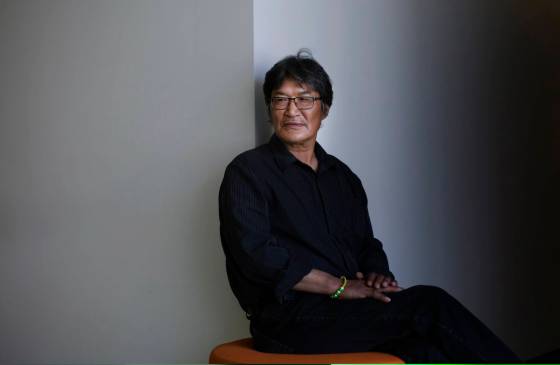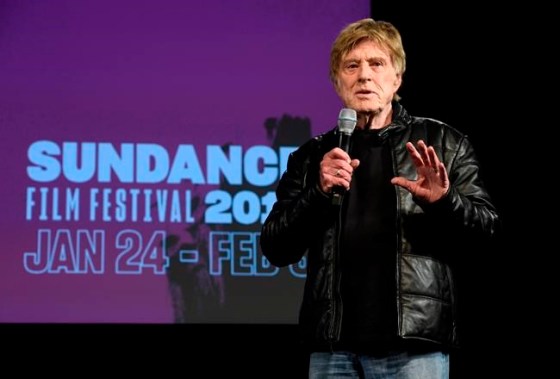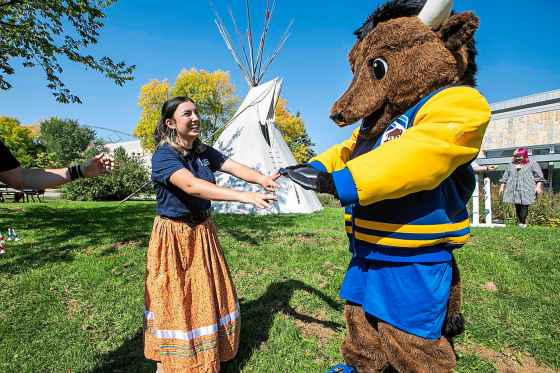FIVE STORIES ON TURTLE ISLAND
1. The prestigious and star-studded Toronto International Film Festival is on this week and eight new Indigenous-led feature films — the most in its history — are hosting their international premieres. One of them, Nunavut’s Zacharias Kunuk’s film entitled Uiksaringitara (Wrong Husband), took home the Best Canadian Feature Film award, too.

Zacharias Kunuk (Michelle Siu / The Canadian Press files)
All are supported by the independent Canadian Indigenous Screen Office (ISO), an independent national body that promotes the creation of First Nations, Inuit and Métis online and film content in Canada, which also announced this week a partnership with YouTube to create new Indigenous video podcasts. Indigenous applicants can now apply for funding to write, produce and film video content to promote Indigenous history, culture, and perspectives — what the ISO calls “narrative sovereignty.”
YouTube will also help train successful applicants, offering guidance on how to maximize the platform’s tools to build audiences and increase visibility, hopefully leading to more award-winning Indigenous filmmakers.
2. Meanwhile, just as Parliament resumed sitting for MPs this week, the federal government announced Build Canada Homes, a new federal agency tasked with “supercharg[ing] homebuilding across the country, with an emphasis and focus on housing in Indigenous communities and First Nations.
The agency will oversee the building of 4,000 homes on six federally owned sites in Dartmouth, N.S., Longueuil, Que., Ottawa, Toronto, Winnipeg and Edmonton, with ground to be broken next year. The agency was part of the Liberals’ election promise to double housing construction across the country.
The Assembly of First Nations has reported that over 150,000 new homes are needed to address the housing crisis in First Nations communities.
3. On Tuesday, Hollywood actor and cultural icon Robert Redford died at the age of 89. Known for his starring roles in legendary American films such as Butch Cassidy and the Sundance Kid, The Natural, and All the President’s Men and directing award-winning films such as Ordinary People and A River Runs Through It — all of which resulted in a lifetime achievement award at the Oscars in 2002.
Equally monumental though was Redford’s founding of the Sundance Institute, a nonprofit organization that supports independent film and theater and is known best for its annual Sundance Film Festival. This is where Redford made significant contributions to help Indigenous filmmakers (starting a program in the early 1990s) and support films like the 1995 drama Smoke Signals to become the first Native American written and directed film to have a commercial release.

Robert Redford, president and founder of the Sundance Institute, in 2019 (Chris Pizzello / Invision / The Associated Press files)
Redford also was instrumental in helping over 300 Indigenous filmmakers receive training over multiple decades and in 2009 offered the Sundance Institute’s first school for Indigenous filmmakers on the homelands of the Mescalero Apache tribe in New Mexico.
4. This past weekend the Mennonite Central Committee held the ninth annual We are All Treaty People gathering at The Forks National Historical site, honouring the history of the numbered treaties, which were signed between Canada and First Nations communities between 1871 and 1921. In 2023, Manitoba Education announced a 30-month plan to train and educate all provincial teachers to competently teach about treaties by the end of 2025.
5. A huge congrats to my good friend and colleague Stacey Soldier, who became the first Anishinaabe woman to become president of the Manitoba Bar Association. A member of Swan Lake First Nation and a practising lawyer at the law firm Cochrane Sinclair, Soldier has handled high-profile land and rights cases, represented the Assembly of Manitoba Chiefs, and appeared at the National Inquiry into Murdered and Missing Indigenous Women and Girls. Indigenous peoples continue to be over-represented in all facets of the Canadian justice system but it is good to see some of us take charge of parts of it too.
IN PICTURES

Mackaila Bruce-Tapley (left), Indigenous Residence Advisor and second-year health sciences student, and Billy the Bison play an Indigenous game at the University of Manitoba Indigenous Orientation on Sept. 10. (Mikaela MacKenzie / Free Press files)
RECONCILI-ACTION OF THE WEEK
Every week I highlight an action, moment, or milestone forwarding reconciliation, illustrating how far Canada has come — and how far the country has yet to go.
This week’s reconciliaction of the week are the multiple investments the Mastercard Foundation (MF) made in Indigenous education and students in Manitoba this past week. As students returned to school, they were met with multiple gifts for their future.
First the MF announced three $5-million investments in Indigenous post-secondary education, one for the University of Manitoba, another for the University of Winnipeg, and yet another for the University College of the North. These are all parts of a nation-wide $235 million investment in 30 post-secondary institutions and Indigenous-led organizations in recognition and support of their ongoing work towards reconciliation in Canada.
Then, there was $25 million for the National Centre for Truth and Reconciliation at the University of Manitoba to create and provide youth-based educational programming in residential schools and the Truth and Reconciliation Commission (TRC). Honouring the 10 years since the completion of the TRC and the 94 calls to action, these kinds of gifts from the MF have been taking place since 2017 and will facilitate opportunities that will be felt for generations to come.
|

